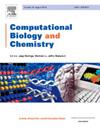癌症中蛋白质脂化的改变:与感觉神经元功能障碍的隐藏联系
IF 3.1
4区 生物学
Q2 BIOLOGY
引用次数: 0
摘要
蛋白质脂化/脱脂作用影响蛋白质功能、相互作用和膜运输。这一过程的失调可能导致肿瘤组织紊乱、增殖、迁移异常和预后不良。虽然神经元脂化/脱脂失调与几种神经退行性疾病有关,但其与癌症患者神经元功能障碍的潜在联系仍未被探索。该研究的目的是通过生物信息学分析来探索蛋白质脂化改变与癌症患者神经系统问题的关系。检索与蛋白质脂化相关的基因列表,并利用癌症公共数据集查询基因集改变对癌症患者总体生存的影响。分析差异表达基因对蛋白质脂化的易感性、染色体分布、基因本体和途径富集分析。进一步进行富集和转录因子靶分析。研究发现,在脂化/脱脂蛋白改变的癌症患者中,差异表达基因(DEGs)与神经元再生/变性通路、嗅觉受体信号通路和感觉知觉通路的富集有关。具体来说,翻译延伸因子EF-1 (TEF1)和转录信号换能器和激活因子1 (STAT1)的靶标在蛋白脂化改变患者的deg中富集。TEF1和STAT1都需要脂化才能正常运作。因此,癌症患者的脂化改变可能与其下游靶点的紊乱有关。这些靶点与神经、感觉和运动功能相关的多种通路和过程显著相关。本文章由计算机程序翻译,如有差异,请以英文原文为准。
Altered protein lipidation in cancer: A hidden link to sensory neuronal dysfunction
Protein lipidation/delipidation affects protein functions, interactions, and membrane trafficking. Dysregulation of this process might lead to tissue disorganization, abnormal proliferation, migration, and poor prognosis in cancer. While dysregulation of lipidation/delipidation in neurons has been associated with several neurodegenerative diseases, its potential link to neuronal dysfunction in cancer patients remains unexplored. The aim of the study is to explore the association of altered protein lipidation with neurological problems in cancer patients via bioinformatic analysis. Gene list related to protein lipidation was retrieved and the effect of gene set alteration on overall survival on cancer patients was inquired using public dataset of cancer. Differentially expressed genes were analyzed for susceptibility to protein lipidation, distribution on chromosomes, Gene Ontology, and pathway enrichment analysis. Further enrichment and transcription factor targets analyses were performed. Differentially expressed genes (DEGs) in cancer patients with altered protein lipidation/delipidation were found to be associated with enrichment of neuronal regeneration/degeneration pathways, olfactory receptor signaling, and sensory perception pathways. Specifically, targets of Translational elongation factor EF-1 (TEF1) and signal transducer and activator of transcription 1 (STAT1) were enriched in the DEGs of patients with altered protein lipidation. Both TEF1 and STAT1 require lipidation for proper functioning. Therefore, altered lipidation in cancer patients could be associated with the disturbance of their downstream targets. These targets are significantly correlated to multiple pathways and processes related to neurological, sensory, and motor functions.
求助全文
通过发布文献求助,成功后即可免费获取论文全文。
去求助
来源期刊

Computational Biology and Chemistry
生物-计算机:跨学科应用
CiteScore
6.10
自引率
3.20%
发文量
142
审稿时长
24 days
期刊介绍:
Computational Biology and Chemistry publishes original research papers and review articles in all areas of computational life sciences. High quality research contributions with a major computational component in the areas of nucleic acid and protein sequence research, molecular evolution, molecular genetics (functional genomics and proteomics), theory and practice of either biology-specific or chemical-biology-specific modeling, and structural biology of nucleic acids and proteins are particularly welcome. Exceptionally high quality research work in bioinformatics, systems biology, ecology, computational pharmacology, metabolism, biomedical engineering, epidemiology, and statistical genetics will also be considered.
Given their inherent uncertainty, protein modeling and molecular docking studies should be thoroughly validated. In the absence of experimental results for validation, the use of molecular dynamics simulations along with detailed free energy calculations, for example, should be used as complementary techniques to support the major conclusions. Submissions of premature modeling exercises without additional biological insights will not be considered.
Review articles will generally be commissioned by the editors and should not be submitted to the journal without explicit invitation. However prospective authors are welcome to send a brief (one to three pages) synopsis, which will be evaluated by the editors.
 求助内容:
求助内容: 应助结果提醒方式:
应助结果提醒方式:


